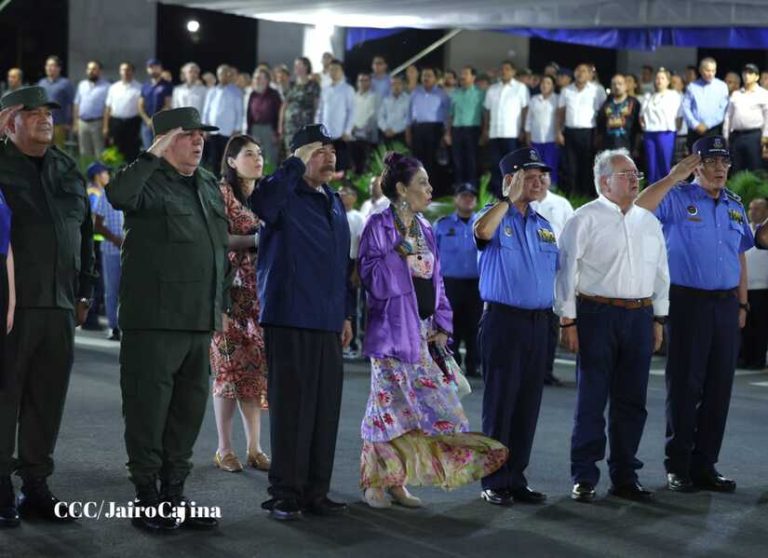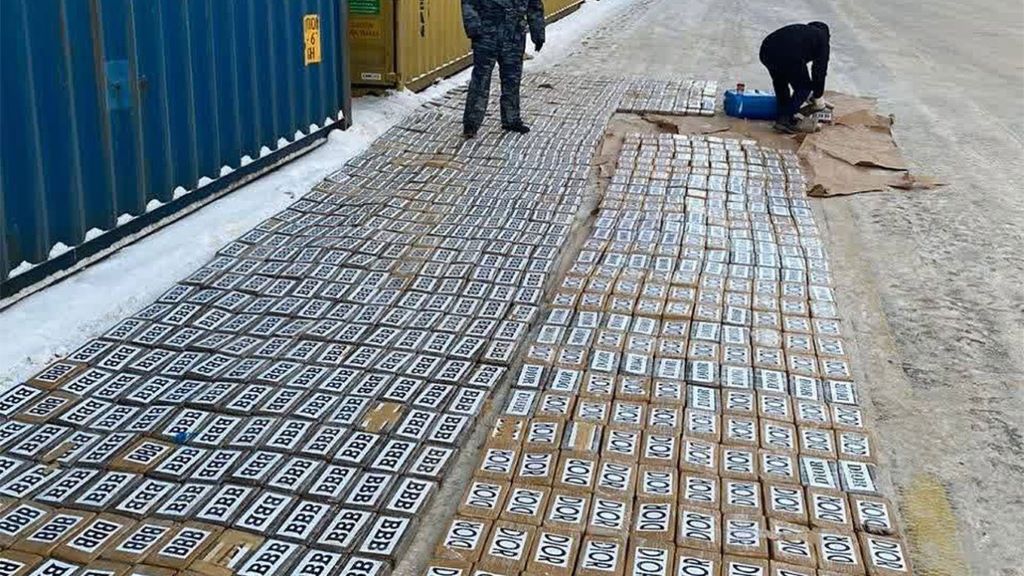16 de enero 2024

“NicaraguAmor” Cultural Caravan for Nicaraguans in the USA

PUBLICIDAD 1M
PUBLICIDAD 4D
PUBLICIDAD 5D
Police and Army stay silent about the seizure in Russia of a ton of cocaine coming from Nicaragua. Experts warn that the regime "facilitates"drug trade

The seizure in Russia of a ton of cocaine coming from Nicaragua revealed the shortcomings of the so-called "containment wall" strategy, according to researchers and experts on national security issues. This policy, led by the Police and the Army, is one of the trump cards used by the regime to demand an end to U.S. sanctions.
To build this supposed "containment wall," the dictatorship has allocated millions of cordobas in recent years, in human resources and equipment for maritime, air and land patrols, according to the national security forces.
One of the experts pointed out that the "inefficiency of the wall" is revealed by the size of the shipment, since moving a ton of cocaine from Nicaragua to Russia requires a great deal of "work in terms of logistics and organization."
"It's not just two or three little packets of cocaine you can carry in a backpack. We're talking about hundreds of packages of drugs. That's where all Nicaraguan institutions failed," the expert said.
The Russian Federal Customs Service said that the drug traffickers "hid" more than 1,000 brown paper-wrapped "bricks" labeled with the letters "BBB" and "DIOR" in the upper part of a container that originated in Nicaragua.
According to the Russian agency, the black market price of the cargo exceeds 11 billion rubles (almost $123 million).
The supposed effectiveness of the government's "retaining wall" strategy has been repeated over and over again by the leaders of the Ortega security forces. At the ceremony marking the 44th anniversary of the Nicaraguan Army in September 2023, General Julio Cesar Avilés, head of the Armed Forces, claimed that Nicaragua is "the safest country in the region, because the national strategy of the 'containment wall' is so highly successful."
In the same speech Avilés virulently attacked the independent press and reiterated his loyalty to dictator Daniel Ortega. "With this strategy we contain, divert and prevent the circulation of more than 800 tons of cocaine through our territory," said the military chief.
However, for one of the researchers, the ton of cocaine seized "confirms what was already suspected: In Nicaragua there is no containment wall, and in fact it has been made easier for the drug networks to use the country as a platform for drug trafficking."
The researcher explained that this "permit for drug trafficking" is "issued" in both "direct and indirect" ways. The direct way is via "corruption, which promotes drug trafficking [and] is at the highest levels in the Public Administration and the security forces."
The indirect way is related to the fact that "the Police and the Army are more focused on repressing opponents and guaranteeing the stability of the family regime than on combating transnational organized crime," according to the researcher.
The Russian government has not released information about the names or nationalities of the smugglers, nor the Nicaraguan port of origin, nor the shipping agency in charge of the container.
Although the news of the seizure became known in the early hours of January 11, neither the Police nor the Army or the Government of Nicaragua has yet commented on the matter.

Javier Melendez, a security researcher, warned that "an operation like this, from Nicaragua, cannot be explained without understanding that drug trafficking is managed by the Nicaraguan government."
"The regime manages it, controls it and decides which cartel is the one that can operate in Nicaragua," said the specialist and former director of the Institute for Strategic and Public Policy Studies (IEEPP in Spanish), shut down by the dictatorship in 2018.
Melendez explained that from their analysis for the specialized media outlet, InSight Crime, they think that drug trafficking in Nicaragua "is analogous" to what happened in Mexico when the PRI governments were in collusion with drug traffickers.
Another of the experts agreed with Melendez, saying that "both Russia and Nicaragua function as cartel states," so it is "probable" that the shipment belongs "to a group that is not one of those who has a 'permit' or is 'controlled' by both authoritarian regimes."
"It is also clear," the expert continued, "that given the size of the shipment and the destination, there was some kind of support among the authorities so that these drugs could be loaded and leave port."
This article was originally published in Spanish in Confidencial and translated by our staff. To get the most relevant news from our English coverage delivered straight to your inbox, subscribe to The Dispatch.
PUBLICIDAD 3M
Confidencial es un diario digital nicaragüense, de formato multimedia, fundado por Carlos F. Chamorro en junio de 1996. Inició como un semanario impreso y hoy es un medio de referencia regional con información, análisis, entrevistas, perfiles, reportajes e investigaciones sobre Nicaragua, informando desde el exilio por la persecución política de la dictadura de Daniel Ortega y Rosario Murillo.
PUBLICIDAD 3D